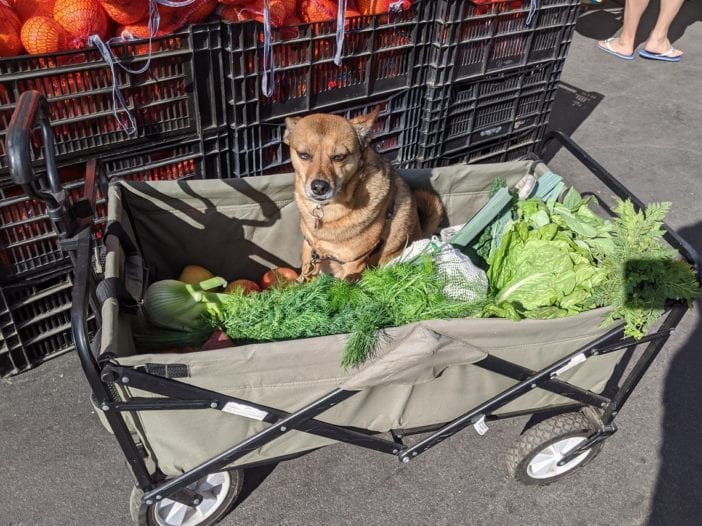Dogs can’t eat grapes because they can be toxic and cause severe kidney damage. Grapes are toxic to dogs and can lead to kidney damage if consumed.
As dog owners, we often want to share our food with our furry companions. While some human foods are safe for dogs to eat in moderation, it’s essential to be aware of the potential dangers lurking in certain foods. One such food that poses a significant risk to dogs is grapes.
Despite being a healthy snack for humans, grapes can be extremely harmful to our canine friends. In fact, even a small amount of grapes or raisins can lead to severe kidney damage in dogs, often with life-threatening consequences. This article aims to explore the reasons why dogs cannot consume grapes, shedding light on the toxic nature of this seemingly harmless fruit for our beloved pets.

Credit: www.funpawcare.com
The Potential Risks Associated With Grapes And Dogs
Grapes can be highly toxic to dogs due to unknown chemicals that can pose serious risks. The ingestion of grapes can lead to kidney failure and other health concerns. It is important for dog owners to understand the potential dangers associated with feeding grapes to their pets.
While the exact substance responsible for the toxicity remains unknown, it is advisable to avoid giving grapes or any grape products to dogs, including raisins and grape juice. The toxic effects can vary depending on the dog’s size, breed, and overall health.
It is always best to err on the side of caution and keep grapes and grape-containing foods out of reach of our furry friends to ensure their well-being. Regular check-ups with a veterinarian are also essential to monitor and maintain our dogs’ health.
Understanding The Symptoms And Consequences Of Grape Consumption
Dogs should not consume grapes as it can have severe consequences on their health. It is important to recognize the early warning signs if a dog has ingested grapes. Symptoms may include vomiting, diarrhea, lack of appetite, and lethargy. As time passes, the long-term effects on canine health become apparent.
Kidney damage is a common result of grape consumption in dogs, and it can lead to kidney failure or even death. Therefore, it is crucial for dog owners to be aware of the potential dangers and ensure that grapes are kept out of their pet’s reach.
Safe Alternatives And Precautions For Dog Owners
Dogs should not consume grapes due to potential risks. However, there are safe alternatives for dog owners to consider. When it comes to canine consumption, it is important to choose healthy and nutritious treats. Avoid giving your dog grapes or raisins as they can be toxic.
Instead, opt for fruits like apples, bananas, or blueberries that are safe for dogs. Additionally, there are specially formulated dog treats available in the market that are delicious and won’t harm your furry friend. It’s crucial for dog owners to be aware of the do’s and don’ts to ensure their pet’s well-being.
Do offer a balanced diet and use treats in moderation. Don’t assume all human foods are safe for dogs. Take precautions and consult your veterinarian for proper guidance. Remember, the health and safety of your dog should always be a priority.
Conclusion
It is important to remember that grapes and raisins can be extremely harmful to dogs. As much as we enjoy snacking on these fruits, they pose a serious health risk for our four-legged friends. The toxic compounds found in grapes can lead to kidney failure, which can be fatal for dogs.
While the exact reason behind this toxicity is still unknown, it is clear that it is best to err on the side of caution and avoid feeding grapes to our canine companions altogether. As responsible dog owners, it is crucial to educate ourselves about the foods that are safe and unsafe for our pets.
By doing so, we can ensure their well-being and prevent any potential health problems. It is always recommended to consult with a veterinarian if you suspect that your dog has consumed grapes or any other potentially toxic food. Remember, a small precaution can go a long way in safeguarding the health and happiness of our furry friends.
